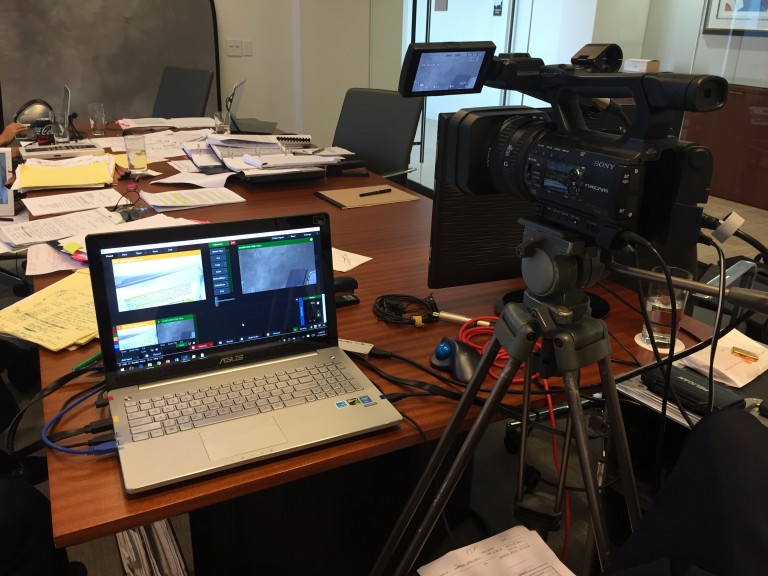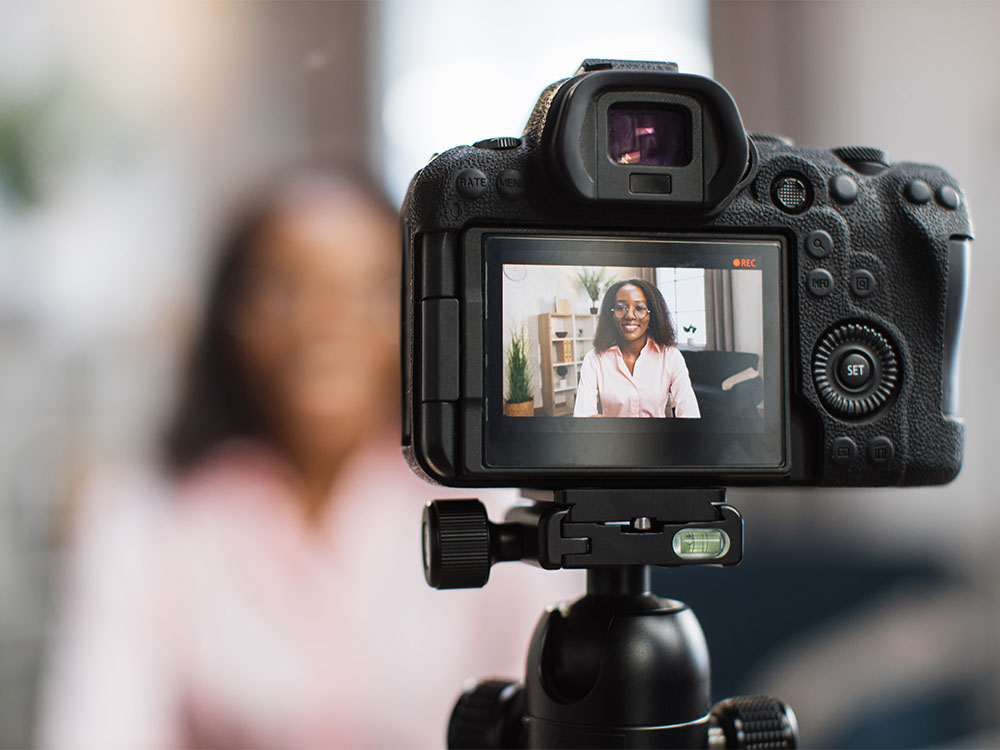The Value of Lawful Video Depositions in Modern Legal Providers: What You Ought to Know
Lawful video depositions have actually come to be important in today's lawful landscape. They provide a multidimensional sight of witness statements that standard transcripts merely can not match. By recording both non-verbal and spoken interaction, these depositions boost the general understanding of a witness's reliability. The efficiency of video clip depositions pivots on numerous elements, consisting of compliance with legal standards and finest practices. Discovering these aspects exposes their real relevance in modern lawful services
What Are Legal Video Clip Depositions?
Legal video clip depositions work as a crucial device in the lawsuits procedure. They include taping witness testaments in a video layout, recording both non-verbal and verbal interaction. This technique allows lawyers to record the behavior, expressions, and reactions of witnesses, providing a richer context for the testimony. Commonly performed in a regulated atmosphere, these depositions are led by attorneys that ask questions while a court press reporter records the discussion. The resulting video clip can be crucial for test prep work, as it enables attorneys to analyze the credibility of witnesses and refine their strategies. Furthermore, legal video depositions can be utilized in different legal contexts, ranging from civil disputes to criminal situations. The visual and acoustic elements of video depositions improve the discussion of proof, making it a necessary part in the modern legal landscape. In general, they contribute considerably to the performance and effectiveness of legal process.

Advantages of Video Depositions Over Standard Methods
Video clip depositions offer numerous advantages contrasted to traditional approaches of taking witness testimonies. One considerable advantage is the ability to catch both audio and visual elements, offering an extra detailed record of the witness's declarations. This dual format enhances clearness and enables lawyers to reference specific nuances during trial preparation. Additionally, video clip depositions facilitate remote participation, making it much easier for witnesses that might be not available for in-person looks as a result of geographical constraints or health issues.Moreover, video clip depositions can speed up the general deposition process, reducing the moment and costs connected with traveling and logistics. They additionally enhance availability, as tape-recorded depositions can be quickly shared amongst lawful groups and referenced any time. This comfort adds to much better situation administration and prep work. On the whole, video depositions represent a contemporary, reliable strategy to collecting witness statements, aligning with the advancing needs of the lawful career.
The Role of Body Language and Tone in Testimonies

In lawful video clip depositions, body movement and tone play vital roles in conveying a witness's credibility and reliability. Nonverbal cues can offer understandings right into a witness's mood, affecting exactly how their testament is regarded. Comprehending the effect of these components is important for attorneys and jurors alike when reviewing the reliability of a testimony.
Nonverbal Communication Insights
While spoken communication is commonly emphasized in legal testaments, nonverbal signs such as body movement and tone play an essential function in communicating reliability and emotion. Onlookers of depositions might note that a witness's stance, motions, and faces can significantly affect perceptions of integrity. For circumstances, constant eye contact may signal confidence, while avoiding look could suggest dishonesty or discomfort. Similarly, the intonation-- its quantity, rate, and pitch-- can present sensations of genuineness or uncertainty. Legal experts must be attuned to these nonverbal signals, as they often supply essential context that matches talked words. Comprehending these nuances can enhance the efficiency of depositions and affect the end result of legal proceedings.
Emotional Tone Effect
The psychological tone conveyed throughout legal testimonies substantially affects just how a witness is regarded. Body movement, vocal inflections, and faces play essential roles fit the narrative of a testament. A witness displaying confidence through stable eye get in touch with and a calm tone can instill a sense of integrity and engagement. On the other hand, indications of stress and anxiety, such as fidgeting or an unstable voice, might cause apprehension concerning their account. The subtleties of psychological expression can affect the analysis of facts, making it vital for attorneys to identify these hints. In video clip depositions, the aesthetic and auditory components integrate, emphasizing the importance of psychological tone in communicating genuineness and truthfulness within the lawful procedure.
Trustworthiness and Reliability
A vital factor in establishing reliability and reliability during testimonies depends on the witness's body language and tone of voice. Viewers commonly count on non-verbal cues-- such as eye contact, stance, and motions-- to analyze a witness's sincerity. A witness who keeps eye get in touch with and displays open body language might be perceived as more trusted and straightforward than one who avoids eye call or shows up shut off. In addition, tone of voice plays a necessary role; a consistent, calm tone can reinforce the trustworthiness of the statement, while variations in pitch or volume may increase uncertainties. Inevitably, the combination of body language and singing tone greatly affects just how a witness's declarations are gotten and interpreted in a legal context.
Ideal Practices for Conducting Video Clip Depositions
Performing video depositions requires cautious preparation and implementation to guarantee a clear and efficient discussion of testament. It is essential to select a peaceful, well-lit location to lessen disturbances and protected optimum video clip high quality. The devices ought to be evaluated beforehand, including electronic cameras, microphones, and illumination, to prevent technical issues during the deposition.Next, events involved need to assess the layout and treatments beforehand, making certain that everyone understands their roles. The deponent needs to be briefed on the process, including how to react clearly and concisely.Additionally, keeping a specialist disposition throughout the session is essential. This consists of avoiding talking over one another and verifying that all questions are routed appropriately. It is crucial to videotape the deposition in a layout that allows for very easy playback and testimonial, preserving the honesty of the statement for future usage.
Lawful Considerations and Conformity Issues
Just how do lawful considerations and compliance problems impact the efficiency of video depositions? Lawful specialists should browse an intricate landscape of policies, ensuring that video clip depositions follow jurisdictional regulations and standards. Conformity with regulations concerning privacy, authorization, and recording approaches is essential. As an example, obtaining explicit authorization from all celebrations involved is required to avoid lawful repercussions.Additionally, the admissibility of video evidence in court can rest on conformity with procedural requirements. Ensuring that the devices utilized fulfills technical criteria is also crucial, as bad quality can undermine the deposition's reliability.Moreover, lawyers have to be aware of any kind of specific state regulations that regulate video clip depositions, as these can differ considerably. Failing to deal visit the website with these considerations can not only endanger the integrity of the deposition but likewise affect the total situation approach, ultimately impacting the customer's legal end results.
How Video Depositions Impact Jury Perception
While video depositions can act as powerful devices in lawful proceedings, their impact on court understanding is considerable. The acoustic and visual elements of video recordings give jurors with a more thorough understanding of witness attitude, reliability, and emotional responses. This multimedia method can enhance the jurors' capacity to evaluate the reliability of testament compared to conventional text-based transcripts.Moreover, video clip depositions permit jurors to observe body language, intonation, and faces, every one of which can influence their interpretation of the witness's statements. The presence of a witness on screen can humanize them, fostering compassion and connection, which may guide jurors' point of views. Conversely, a witness that shows up untrustworthy or incredibly elusive on video may cause negative understandings that influence a court's decision. Inevitably, the dynamic nature of video clip depositions plays an important function fit just how jurors translate proof and reach their verdicts.
The Future of Video Clip Depositions in Legal Method
As developments in technology remain to improve the legal landscape, the future of video depositions is positioned for considerable advancement. Developments such as fabricated intelligence, online reality, and improved video conferencing tools are expected to simplify the deposition process and enhance ease of access. Attorneys may utilize AI-driven analytics to evaluate witness integrity and case strength more effectively.Moreover, the combination of virtual reality can enable juries to experience immersive simulations of depositions, offering much deeper context and understanding. Additionally, the pattern toward remote depositions is likely to get more persist, supplying higher flexibility for attorneys and customers alike.As remote job ends up being significantly stabilized, video depositions will likely come to be typical practice, decreasing prices and time restraints connected with traditional methods. On the whole, these technical innovations assure to improve the effectiveness, efficiency, and ease of access of video clip depositions in lawful technique, inevitably transforming how lawyers plan for test.
Frequently Asked Questions
How Much Do Lawful Video Depositions Normally Price?

Can Video Depositions Be Utilized in Any Type Of Kind of Case?
Video clip depositions can be made use of in different sorts of situations, consisting of civil, criminal, and family legislation. look at this site Their adaptability permits attorneys to existing witness testimonies successfully, adjusting to the certain requirements of various legal situations.
What Devices Is Needed for a Video Clip Deposition?
To conduct a video clip deposition, essential equipment consists of a high-grade video camera, microphone, lights, and a trustworthy recording tool. In addition, a computer with modifying software program may be required for post-production and formatting the final video.
The length of time Does a Regular Video Clip Deposition Last?
A regular video clip deposition lasts in between two to 4 hours, relying on the intricacy of the instance and the variety of questions presented. Extensive sessions may happen, but breaks are typically integrated for individual convenience.

Are Video Clip Depositions Admissible in Court?
Video depositions are usually acceptable in court, given they abide by legal standards and policies of evidence. Their usage enhances clarity and preserves witness testament, helping in the judicial process throughout hearings and trials. Lawful video clip depositions have become essential in today's legal landscape. In addition, legal video depositions can be used in different legal contexts, ranging from civil conflicts to criminal instances. Furthermore, video clip depositions assist in remote participation, making it simpler for witnesses that may be unavailable for in-person appearances due to geographical constraints or health and wellness issues.Moreover, video clip depositions can expedite the general deposition procedure, lowering the time and prices associated with travel and logistics. Guaranteeing that the equipment used fulfills technological standards is likewise essential, as poor high quality can threaten the deposition's reliability.Moreover, lawyers have to be aware of any details state legislations that regulate video clip depositions, as these can differ substantially. Furthermore, the fad towards remote depositions is most likely to continue, using higher adaptability for clients and attorneys alike.As remote job ends up being significantly normalized, video clip depositions will likely come to be basic method, decreasing prices and time restraints linked with typical methods.